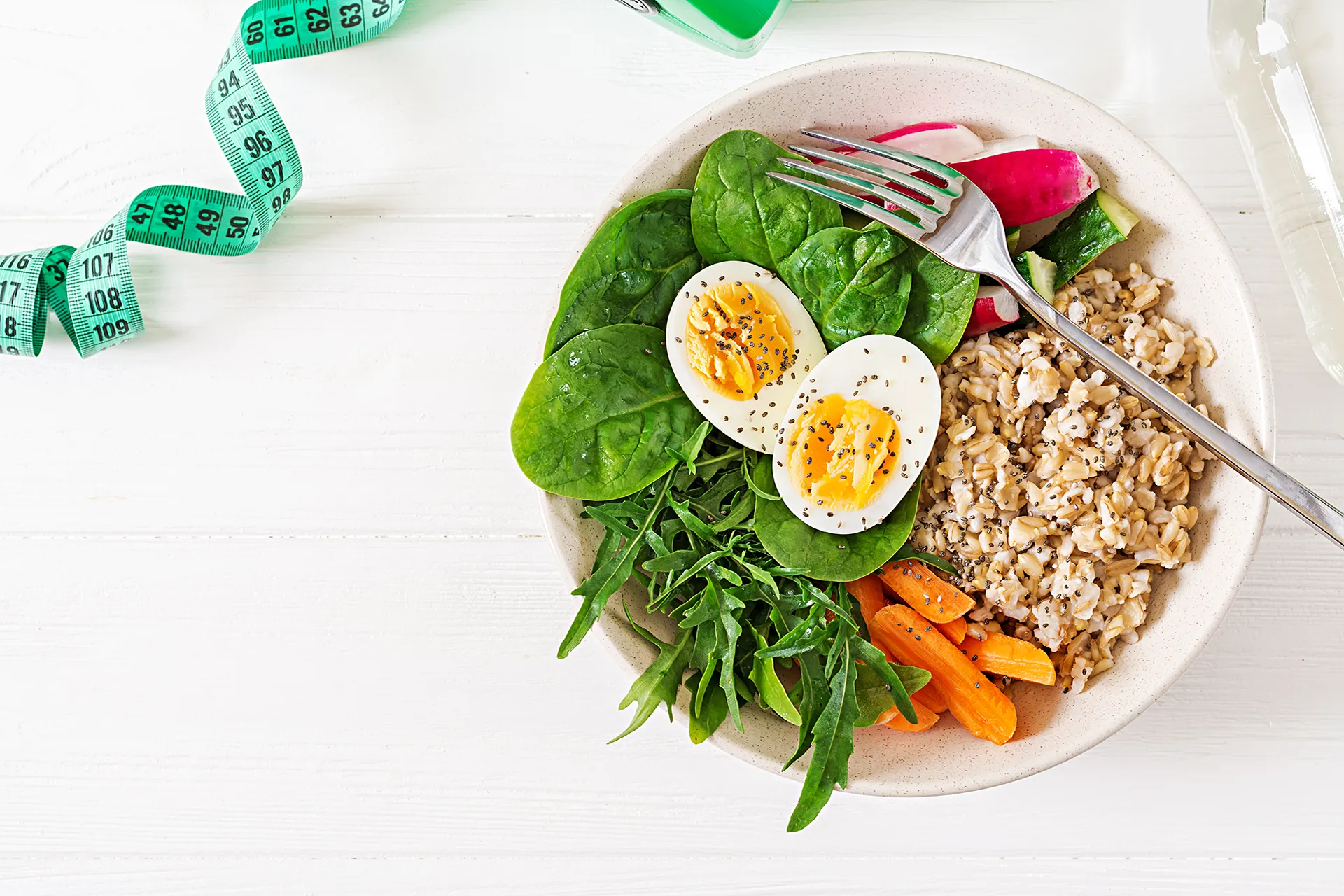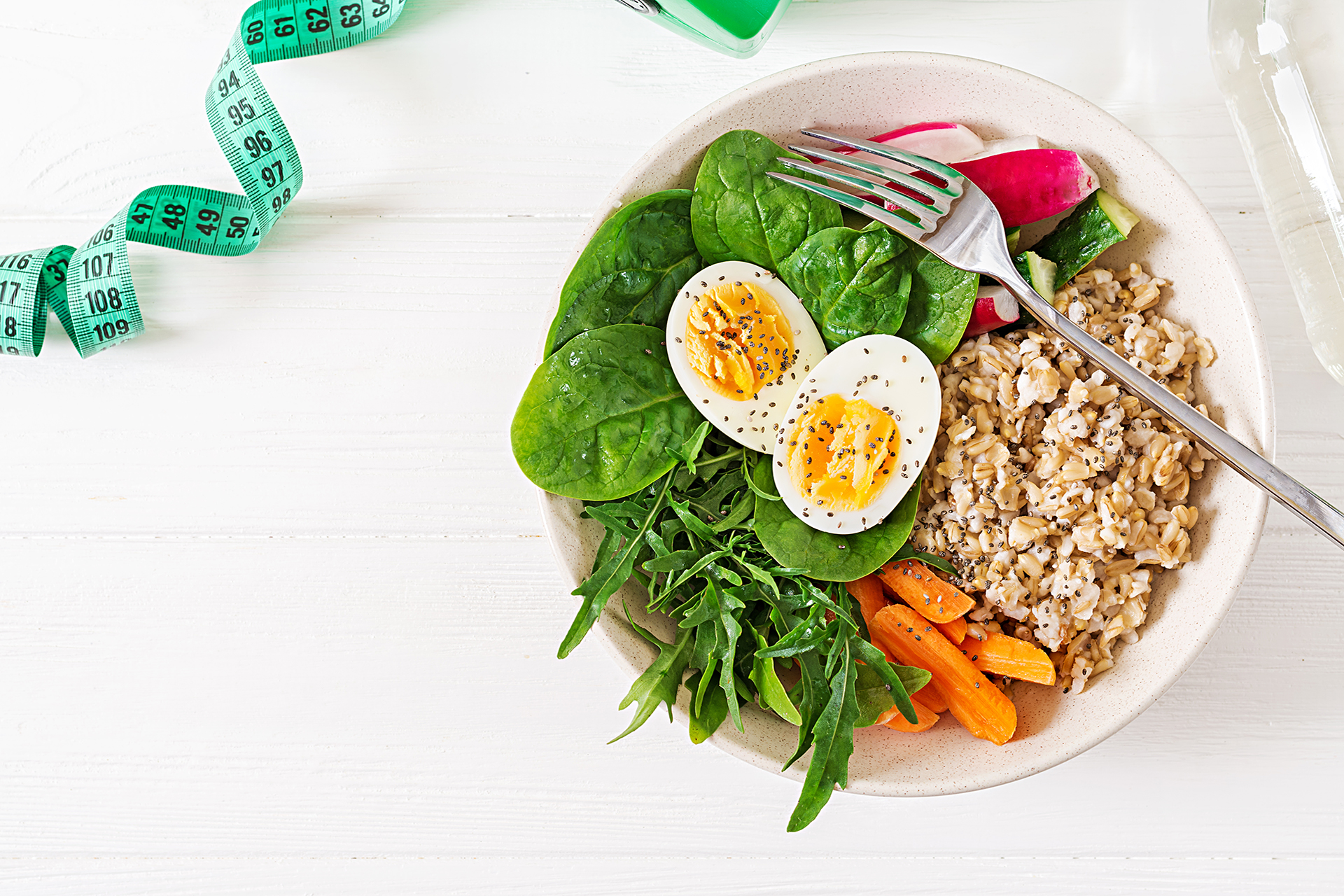Nutrition | 5 min read
It's Important To Know the Difference between Diet and Nutrition: Here's a Guide
Medically reviewed by
Table of Content
Key Takeaways
- Diet is what you eat while nutrition refers to the fuel you need to function
- You can build a good diet by understanding which foods offer what nutrients
- Consult a nutritionist for a customised diet plan for your unique requirements
Since the words diet and nutrition are closely related to eating, they’re often used interchangeably. However, their meanings are distinct and different. While you may associate the word ‘diet’ with a litany of weight-loss meal programmes, in the traditional and true sense of the word, the meaning of ‘diet’ is entirely different.
In a nutshell, diet refers to all the food that you consume through the day, on a regular basis. Nutrition, on the other hand, refers to the fuel that your body requires to function optimally and maintain good health. It refers to the right mix of nutrients.
For a deeper understanding of the difference between diet and nutrition, keep reading.
Diet and nutrition: Key differences
As you now know, the food that you eat regularly comprises your diet. There may be some variations, but in the Indian context, typically our diet comprises chapatis, sabzis, dal, rice and curries. Sure, you may eat pulao one day and steamed rice the next day, but broadly, your diet comprises the same elements. Minor variations may also occur owing to cultural beliefs, economic status—which determines the quality of food that you can procure—your environment and geographical location.
In the diet vs nutrition debate, nutrition is more straightforward and has fewer variables. Good nutrition means providing your body with complex carbohydrates, healthy fats and protein, along with vitamins and minerals. You can get these nutrients by eating plenty of fresh vegetables and fruits, lean meats, low-fat dairy products, beans and lentils, and whole grains such as buckwheat, whole wheat, brown rice and oats. While this is the norm for an average, healthy person, with medical conditions such as diabetes, osteoporosis, or pregnancy, the body’s nutritional requirements differ slightly. You still require the same nutrients, but in different proportions.
Understanding what good nutrition is for you lays the foundation for your diet. Once you know the nutrients that your body needs, you can build a diet that comprises foods that are the best sources of those nutrients. Additionally, good nutrition also refers to understanding the flipside, that is what not to eat. For instance, it means avoiding processed meats that can cause high blood pressure and products with added sugar that can weaken your immunity.
In a nutshell, knowing what your body needs by way of nutrients is step 1, and building a diet that offers your body the nutrition it needs is step 2. When there is a discord between diet and nutrition—that is when your diet is unhealthy or lacking in nutrients—it can culminate in illnesses such as obesity, heart disease, strokes and even some types of cancer.
So, take a look at which foods offer you what nutrients, and how you can modify your diet to make essential nutrients easily available to your body.

Food nutrition chart for easy reference
Now that you know that a mix of fibre, carbohydrates, proteins, healthy fats, vitamins and antioxidants are necessary for good health, refer to the following food nutrition chart. This will help you learn which foods are the best sources of each.
| Nutrient | Foods to eat |
| Healthy carbohydrates |
|
| Proteins |
|
| Fibre |
|
| Healthy fats |
|
| Vitamin C |
|
| Iron |
|
| Antioxidants |
|
Nutrition facts to keep in mind
Now that you know which foods should serve as the cornerstones of your diet and nutrition plan, supplement your knowledge with some healthy eating facts.
- One of the lesser known nutrition facts is that milk is a good source of calcium, but spinach, chickpeas and mustard greens are even better! This means that even if you are lactose intolerant, you don’t have to compromise on calcium.
- Whenever you eat a meal, ensure that at least half of your plate is filled with fruits and vegetables, one quarter comprises whole grains, and the last quarter comprises protein.
- Midnight snacking can derail your diet so opt for a banana, nuts or homemade popcorn instead.
- One of the best healthy eating facts is to eat small meals through the day. It keeps you satiated, stabilises blood sugar levels and makes your metabolism more efficient!
- Eat a small portion of protein with every meal to encourage fat burn and protect your muscle mass.
- One of the most basic healthy eating facts is to pick homecooked food over restaurant meals. This way you can be sure of nourishing your body with nutrients. With restaurant meals, you have no control over the fat or quality of ingredients used.
While these tips will serve you well if you’re in the pink of health, it is best that you consult a nutritionist should you have any pre-existing illnesses or if you are over- or under-weight. A nutritionist will be able to advise you on what ideal nutrition equates to for your unique health profile, and create a diet chart for you accordingly. This approach will also yield results more quickly.
To consult with a nutritionist simply use Bajaj Finserv Health. It shows you a list of nutritionists in your locality, and you can pick one based on their fees, experience, timings and other filters. Book an online doctor appointment or in-person appointment, get medicine reminders, healthcare information, as well as deals and discounts from a number of empaneled hospitals, clinics and pharmacies.
References
- https://pubmed.ncbi.nlm.nih.gov/8621198/
- https://www.ncbi.nlm.nih.gov/pmc/articles/PMC7352291/
Disclaimer
Please note that this article is solely meant for informational purposes and Bajaj Finserv Health Limited (“BFHL”) does not shoulder any responsibility of the views/advice/information expressed/given by the writer/reviewer/originator. This article should not be considered as a substitute for any medical advice, diagnosis or treatment. Always consult with your trusted physician/qualified healthcare professional to evaluate your medical condition. The above article has been reviewed by a qualified doctor and BFHL is not responsible for any damages for any information or services provided by any third party.



